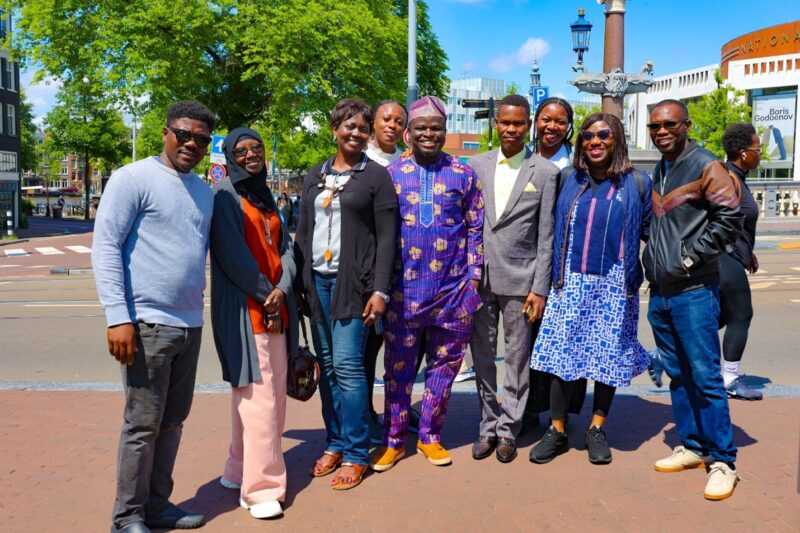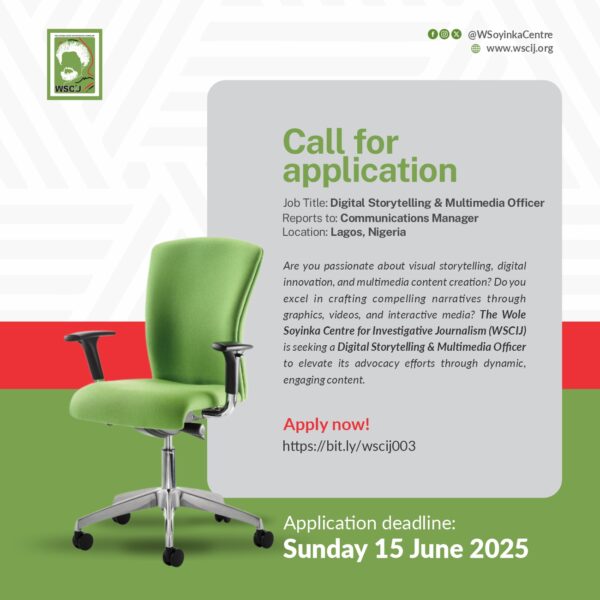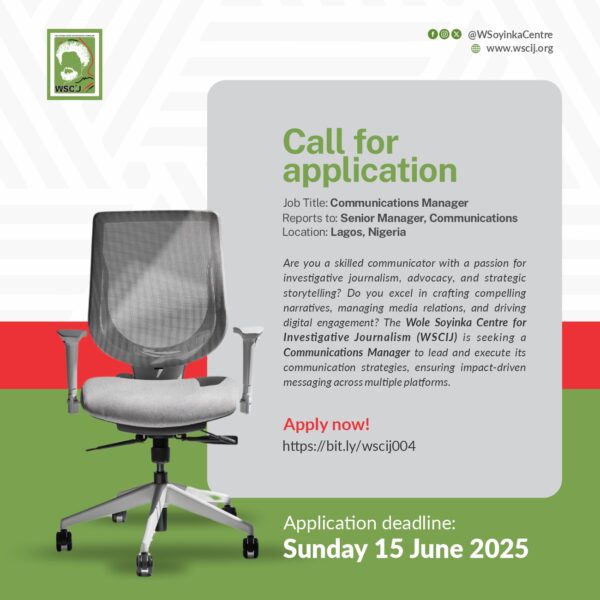Accountable democracy is characterised by a free press, one with the ability to express truth as they come, investigate rot and abuses where they exist, and contribute to, as well as strengthen public debate and developmental issues.
It was established that accountable democracy and good governance is hinged on credible elections during the 11th Wole Soyinka Centre Media Lecture Series. As much as this holds true, freedom of the press, and by extension, freedom of expression is one component that cannot be ignored, which unfortunately has been. Ironically, many journalists came under attack while covering the 2019 General Elections across Nigeria.
According to Amnesty International, the rights of many journalists (in the line of duty) have been violated and in the event that legal redress was sought, the authorities have failed (in their own duties) to obey court judgements, while halting access to justice and the right to an effective remedy.
From Dele Giwa, who was killed by a bomb explosive parcel in his residence on October 19, 1986, to Precious Owolabi, who was cut in his prime by a stray bullet during the Shiites and Police clash in Abuja in July, 2019, it is most certain that impunity has overridden justice in these cases as their perpetrators are yet to be brought to book.
A recent record by the Committee for Protection of Journalists revealed that during a 10-year index period ending August 31, 2019, 318 journalists were murdered for their work worldwide, and in 86 percent of these cases, no perpetrators have been successfully prosecuted. In its 2018 Global Impunity Index, CPJ stated that there were thirteen unresolved murders of journalists in Nigeria within the reporting period.
United Nations Education, Scientific and Cultural Organisation (UNESCO) observed that more than a thousand journalists were killed between 2006 and 2017. According to the report, in 2016 and 2017 alone, 182 journalists lost their lives in the line of duty, and in 2018, 86 journalists were killed.
The case of the likes of Jones Abiri and several others are true to type of the extent to which impunity has emboldened the Nigerian authority in matters relating to the press. Abiri, who is the publisher and editor-in-chief of the Weekly Source Newspaper, was arrested and detained in July 2016 for over 2 years. He was released briefly and later rearrested on 20 May 2019 upon a multiple count charge of terrorism, petroleum production and cybercrime and has since been in detention upon his inability to meet his stringent bail conditions. Also, Agba Jalingo, journalist and right activist – as reported by CPJ was arrested on August 22 by the Police and on August 30, federal authorities in southern Nigeria’s Cross River State charged him with disturbance of public peace and treason for his writing and social media posts about Cross River Governor Benedict Ayade.
The media, especially journalists, whose works have shaken tables have faced different forms of attack in Nigeria. The Press Attack Tracker Platform has a record of about 377 attacks on journalists varying from threat, physical attack and arrest since 1986. The recent being a threat of arrest by the Nigerian authorities on Fisayo Soyombo, an Investigative Journalist, who exposed the rot in the Nigerian Police Force and Correctional Service as well as the Judicial system.
Like Fisayo, Mary Ekere, a female journalist on September 16, 2019 was arrested and detained for two nights in Akwa Ibom, for taking photos of task force officials who raided a city spot. Cletus Ukpong, Regional Editor, South-South for the Premium Times, who broke the story of the reporter’s arrest, was also threatened with the same kind of treatment.
Victor Ogungbero, a video editor with Sahara Reporters, was attacked and arrested in Lagos during the #RevolutionNow protest on 5th of August 2019. On the same day protest in Ore, Ondo State, Tosin Ajuwon, also a journalist with Sahara Reporters, was arrested while covering the same protest.
Evelyn Okakwu, a judiciary correspondent and reporter working for Premium Times was arrested alongside her publisher, Dapo Olorunyomi on 19 January 2017. The arrests came days after Premium Times rejected the demand of the army to retract some news stories about the Nigerian Army and its operations.
On 4 January 2018, Taiye Elebiyo Edeni, a female journalist with the News Agency of Nigeria (NAN), was physically manhandled and wounded by police operatives during the presidential commissioning exercise at Kaduna Dry Port.
Reporters Without Borders, an organisation that conducts advocacy for freedom of information and press freedom, ranked Nigeria 120 out of 180 in its 2019 Data of Press Freedom ranking. The report also rated Nigeria as ‘difficult’ for press freedom and net freedom.
On October 9, 2019, two journalists, Okodi Okodi and Owoidoho Udofia, with Inspiration FM, in Uyo while covering a protest in Akwa Ibom State, South-South Nigeria, were arrested and molested by the police…
Reflecting on the ideals of accountable democracy, on this day (November 2) set aside to commemorate the ‘International Day to End Impunity for Crimes against Journalists, the WSCIJ joins the rest of the world to decry the injustice in impunity for crimes against journalists globally, and in Nigeria especially. We maintain that to utterly end impunity for crimes against journalists, government at all levels must ensure that the rights of the citizenry as contained in section 2 of the 1999 constitution is upheld.
A free press is devoid of oppression!
Journalism is not a crime!
Protect the rights of journalists!
#EndImpunityNG #TruthNeverDies







